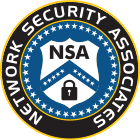Why Is Data Compliance So Important
Now more than ever, data protection should be at the top of the mind of every organization, especially given the increasing number of data security and privacy regulations and standards that businesses must heed. What’s more, these data protection compliance standards are getting updated more regularly than in the past years.
Because of this, ensuring that these standards are met can be challenging and time-consuming. Fortunately, there are approaches you can implement to help you meet all the standards and regulations you’re liable for.
Continue reading to find out what data compliance is, common data compliance regulations, and why data compliance is crucial.

What Is Data Compliance?
Data compliance refers to the process of following different regulations and standards to maintain the integrity and availability of regulated data and/or sensitive information. As more and more processes become digitized, data is becoming the new competitive advantage and a key resource for businesses of all types. Protecting that data, more so sensitive personally identifiable information (PII), and ensuring that it complies with the set regulations is key to the survival of any business.
That said, it’s essential for businesses of all sizes. Whether you’re a small business or a Fortune 500 company, you need to ensure that your data is compliant with the latest regulations.
Data Protection and Regulation Standards
There are numerous industry-specific and location-specific regulations and standards that govern data security and data privacy. Here is an outline of the most common ones:
The Health Insurance Portability and Accountability Act (HIPAA) sets the data security standards for how healthcare providers and businesses must handle patients’ personal health information to ensure that it stays safe and confidential.
Entities bound by this regulation include not only providers and health plans but also businesses that have access to patients’ personal information, such as:
- Medical transcriptionists
- Data transmission providers
- Insurance companies
- Software providers
Basically, all organizations in the healthcare industry must adhere to HIPAA standards lest they incur hefty fines or even face business closure.
Cybersecurity Maturity Model Certification (CMMC)
In January 2020, the DoD (Department of Defense) released the initial version of the new CMMC to assess and improve the cybersecurity status of the DIB (Defense Industrial Base). This regulation is intended to act as a verification solution to ensure the right levels of cybersecurity processes and practices are established to ensure basic cyber hygiene and safeguard controlled unclassified information. All entities that conduct business with the DOD, including subcontractors, must be certified.
PCI-DSS
Any business that accepts, transmits, or stores cardholder information is subject to PCI-DSS and is expected to have security measures in place to ensure proper handling and storage of this information. Even businesses that use third-party organizations to handle credit card payments are expected to comply with this regulation.
Importance of Data Compliance
Here is an outline of some of the benefits that organizations that are data compliant can reap:
- It helps build brand loyalty: Data compliance signals to customers that their personal information will always be secure. As such, they are likely to continue using your products and/or services because they are confident that, with you, they are safe.
- It helps reduce bad publicity: When your business is non-compliant with data protection regulations, the chances are that word will spread around that you can’t keep your clients’ personal information. As a result, the reputation of your business will be tainted, and you’ll have a difficult time retaining and attracting new customers.
- You’ll attract high-caliber employees: When a corporate code includes data compliance, they will be better placed to attract and retain the best talent. Keep in mind that employees desire to work in an environment where they know their personal information is safe and that they won’t have to worry about losing their jobs because their employer is non-compliant with data protection and privacy regulations.
- You’ll avoid paying hefty fines: Organizations that aren’t compliant may end up losing sensitive employee or customer information and end up paying hefty fines for the same.
How Do You Ensure Data Compliance?
1. Ensure Your Data Protection Measures Are Up-To-Date
Data security is the heart of compliance regulations. As such, you should ensure that you not only have a robust data compliance process, but also that you use modern data compliance strategies. It’s also important to regularly review your data security measures to ensure that they align with the current industry data protection and compliance standards.
2. Create a Detailed Record of Data Protection and Audit Processes
It is vital that you keep a record of all data protection and audit procedures for the following reasons:
- The record will ensure that information on your business’s compliance activities doesn’t leave with a single employee.
- The record will act as an example of your company’s willingness to comply with each set of regulations.
3. Put Someone in Charge of Data Security and Compliance Standards
Just like with any other process, data security and compliance need to have someone in charge to ensure that all the pieces are moving seamlessly. This individual should have a direct line of contact with executives and have authority and credibility to influence others throughout the entire business to meet data security and compliance standards. Besides that, you should use common control frameworks (CCF).
Bottom Line
Put quite simply; data compliance is merely a minimum set of requirements laid out by various regulatory bodies, whether government or industry-specific, in an attempt to safeguard data. This is obviously a crucial first step towards data security and sets a baseline for performance in specific sectors and specific technologies. Even so, compliance should never be mistaken for full-fledged security.
We would be remiss if we assumed that meeting the minimum compliance requirements qualifies as due diligence, more so with the relentless, never-ending stresses placed on networks and systems by hackers, terrorists, and foreign governments.
That said, as a managed services provider working with different verticals, we understand the prescribed compliance requirements for industries that have baselines and those that don’t.
Are you looking for compliance management and other security services? Contact Network Security Associates (NSA) today. We can help your Las Vegas business with gaming, accounting, HIPAA, or any other type of compliance.
Thanks to our friends at DataEcon in Dallas for their help with this article.

